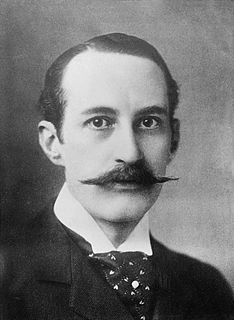A Quote by Neil Abercrombie
So there's always been this clash between what is the public good - that which belongs to all of us in common - and what can be exploited for a private interest.
Related Quotes
Public virtue cannot exist in a nation without private, and public virtue is the only foundation of republics. There must be a positive passion for the public good, the public interest, honour, power and glory, established in the minds of the people, or there can be no republican government, nor any real liberty: and this public passion must be superiour to all private passions.
I don't know if the term 'liberation theology,' which can be interpreted in a very positive sense, will help us much. What's important is the common rationality to which the church offers a fundamental contribution, and which must always help in the education of conscience, both for public and for private life.
Now listen to the first three aims of the corporatist movement in Germany, Italy and France during the 1920s. These were developed by the people who went on to become part of the Fascist experience: (1) shift power directly to economic and social interest groups; (2) push entrepreneurial initiative in areas normally reserved for public bodies; (3) obliterate the boundaries between public and private interest -- that is, challenge the idea of the public interest. This sounds like the official program of most contemporary Western governments.
Since the whole city has one end, it is manifest that education should be one and the same for all, and that it should be public, and not private - not as at present, when every one looks after his own children separately, and gives them separate instruction of the sort which he thinks best; the training in things which are of common interest should be the same for all. Neither must we suppose that any one of the citizens belongs to himself, for they all belong to the state, and are each of them a part of the state, and the care of each part is inseparable from the care of the whole.
Pure community is a matter of no interest to any will; but a community which pursues a common good is of supreme interest to all wills; and what we have here said is that whatever the nature of that common good ... it must contain the development of individual powers, as a prior condition for all other goods.
Whoso turns his attention to the bitter strifes of these days and seeks a reason for the troubles that vex public and private life must come to the conclusion that a fruitful cause of the evils which now afflict, as well as of those which threaten us, lies in this: that false conclusions concerning divine and human things, which originated in the schools of philosophy, have crept into all the orders of the state, and have been accepted by the common consent of the masses.
To attach full confidence to an institution of this nature, it appears to be an essential ingredient in its structure, that it shall be under private and not a public direction-under the guidance of individual interest, not of public policy; which, would be . . . liable to being too much influenced by public necessity.
































